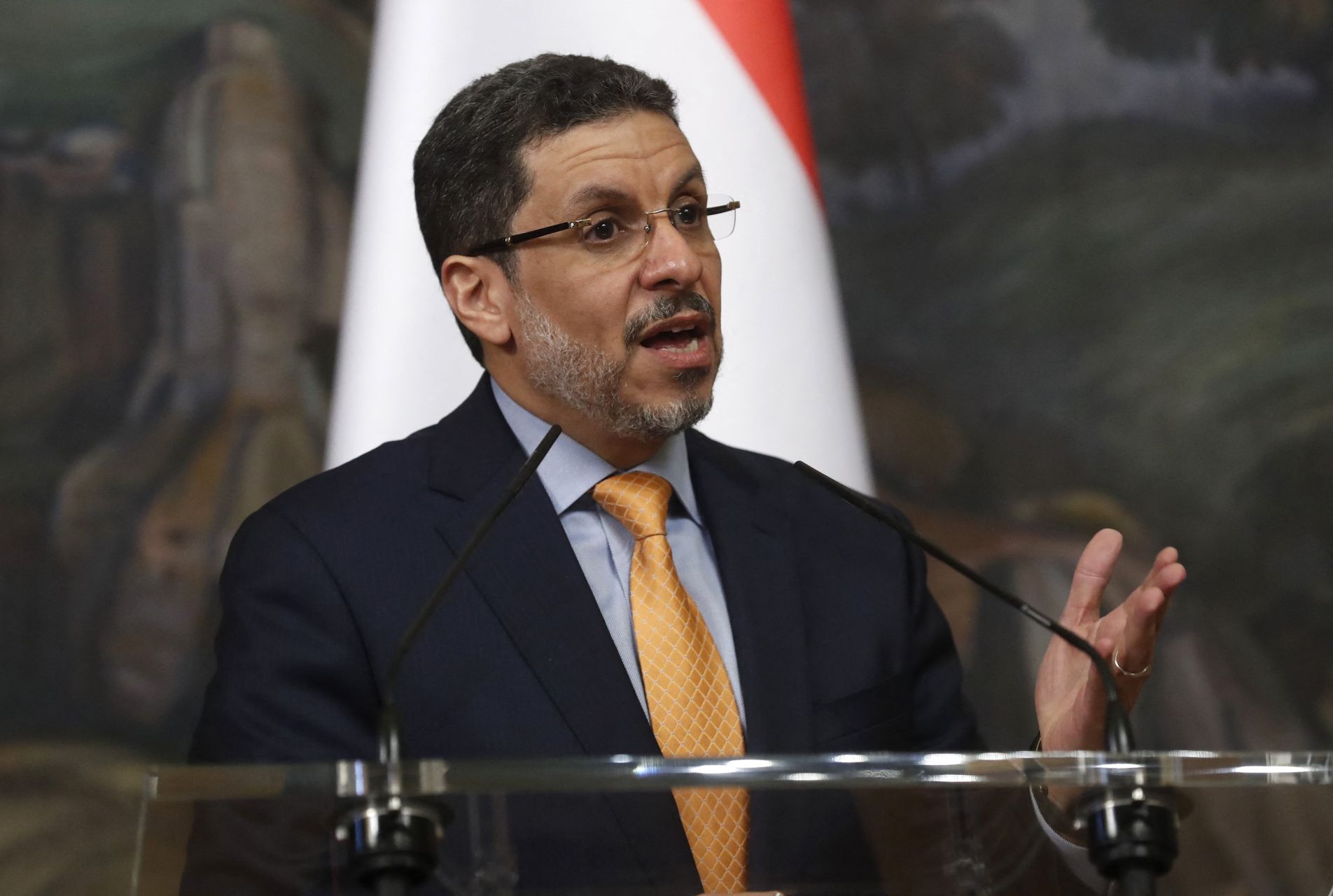- Home
- Middle East
- Yemen Government Names Finance Minister as New PM

Yemeni Prime Minister Ahmed Awad Bin Mubarak, February 27, 2024. ©(MAXIM SHIPENKOV / AFP)
Yemen's internationally recognised government named finance minister Salem bin Buraik as its new prime minister on Saturday, after his predecessor quit saying he was unable to fully exercise his powers.
Outgoing premier Ahmed Bin Mubarak had disputed for months with Rashad al-Alimi, who heads the Saudi-backed Presidential Leadership Council, two ministers and a member of the PLC told AFP.
Alimi named Bin Buraik prime minister in a decision published by the official Saba news agency. No other ministerial changes were announced.
Analyst Mohammed Albasha, of the US-based Basha Report Risk Advisory, posted on X that Bin Buraik is seen as non-confrontational -- "a sharp contrast to his predecessor, with whom much of the cabinet, and even the president, had fallen out".
After Iran-backed Huthi rebels seized the capital Sanaa in 2014, Yemen's government withdrew to Aden in the south.
The rebels went on to control most population centres in the impoverished Arabian Peninsula country.
A Saudi-led military coalition intervened in support of beleaguered government forces in 2015, but met with little success.
Albasha said Bin Buraik is "backed by UAE-aligned Yemeni politicians and enjoys strong ties with Saudi officials", and this would have been crucial in securing Riyadh's endorsement.
Bin Mubarak earlier posted on X that he had handed Alimi his letter of resignation.
In it he said: "I could not exercise my constitutional powers and take the necessary decisions to reform government institutions or implement rightful governmental changes."
The changes come as the Huthis who control much of Yemen wage fire missiles at Israel and target shipping in key waterways in what they say is a show of solidarity with Palestinians over the war in Gaza.
In his resignation letter, Bin Mubarak said that despite the obstacles he had achieved "many successes", citing fiscal and administrative reforms and an anti-corruption drive.
'Personal Ambition'
However, Albasha told AFP Bin Mubarak had been "in constant friction with the Presidential Leadership Council".
"Bin Mubarak wanted to be more than Prime Minister -- he wanted the powers of the presidency. That aspiration isolated him politically," Albasha said.
The three Yemeni official sources, who spoke to AFP requested anonymity in order to speak freely, said Bin Mubarak had suspended the budgets of several ministries including defence, citing corruption, further fuelling tensions.
"His drive for greater power -- viewed by many as fuelled by personal ambition -- led to repeated confrontations with key ministers and most Council members," Albasha said.
Yemen's former ambassador to the United States and envoy to the UN, Bin Mubarak is a staunch adversary of the Huthis, who abducted him in 2015 and held him for several days.
He became foreign minister in 2018 and prime minister in February last year.
His departure should "ease internal tensions and reduce the deep divisions that have plagued Yemen's internationally recognised government -- a necessary and positive step toward restoring cohesion", Albasha said.
The conflict in Yemen has caused hundreds of thousands of deaths and triggered one of the world's worst humanitarian crises, although the fighting decreased significantly after a UN-negotiated six-month truce in 2022.
Since the Gaza war erupted in October 2023 after Hamas attacked Israel, the Huthis have repeatedly targeted Israel and ships in the Red Sea and Gulf of Aden that they say are linked to it.
They paused their attacks during a two-month Gaza ceasefire, but in March a threat to resume attacks over Israel's Gaza aid blockade triggered a renewed and sustained US air campaign targeting areas in Yemen they control.
AFP
Read more



Comments